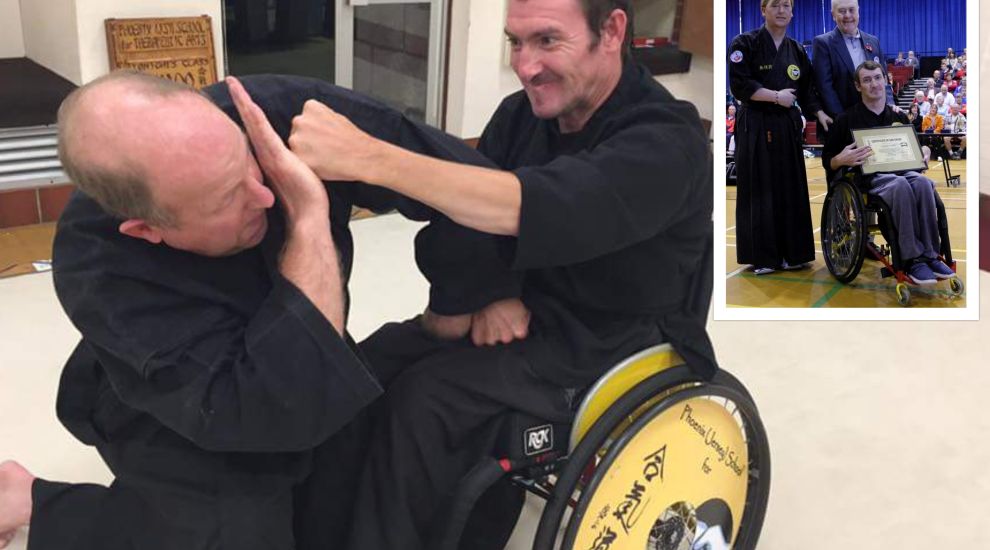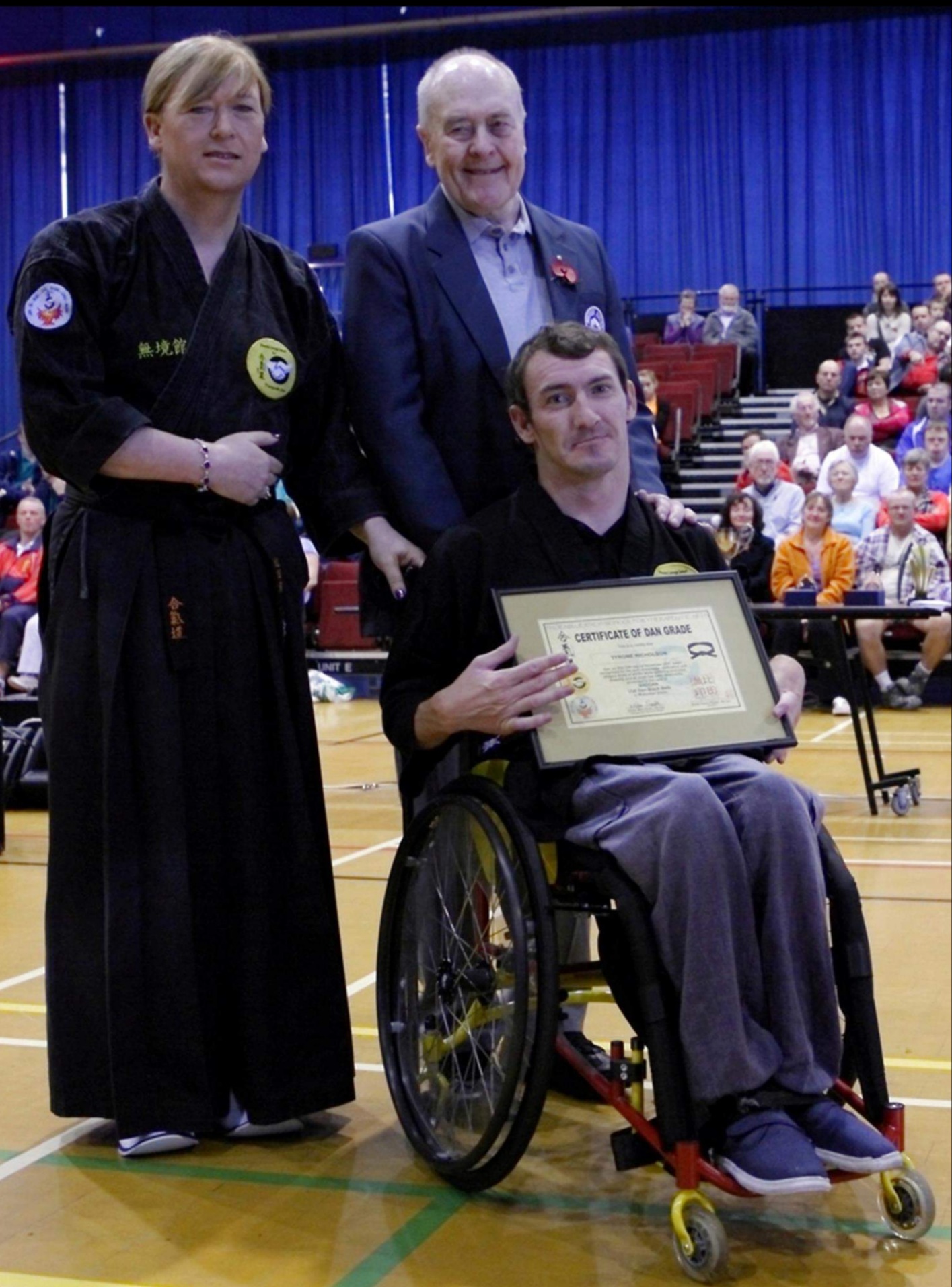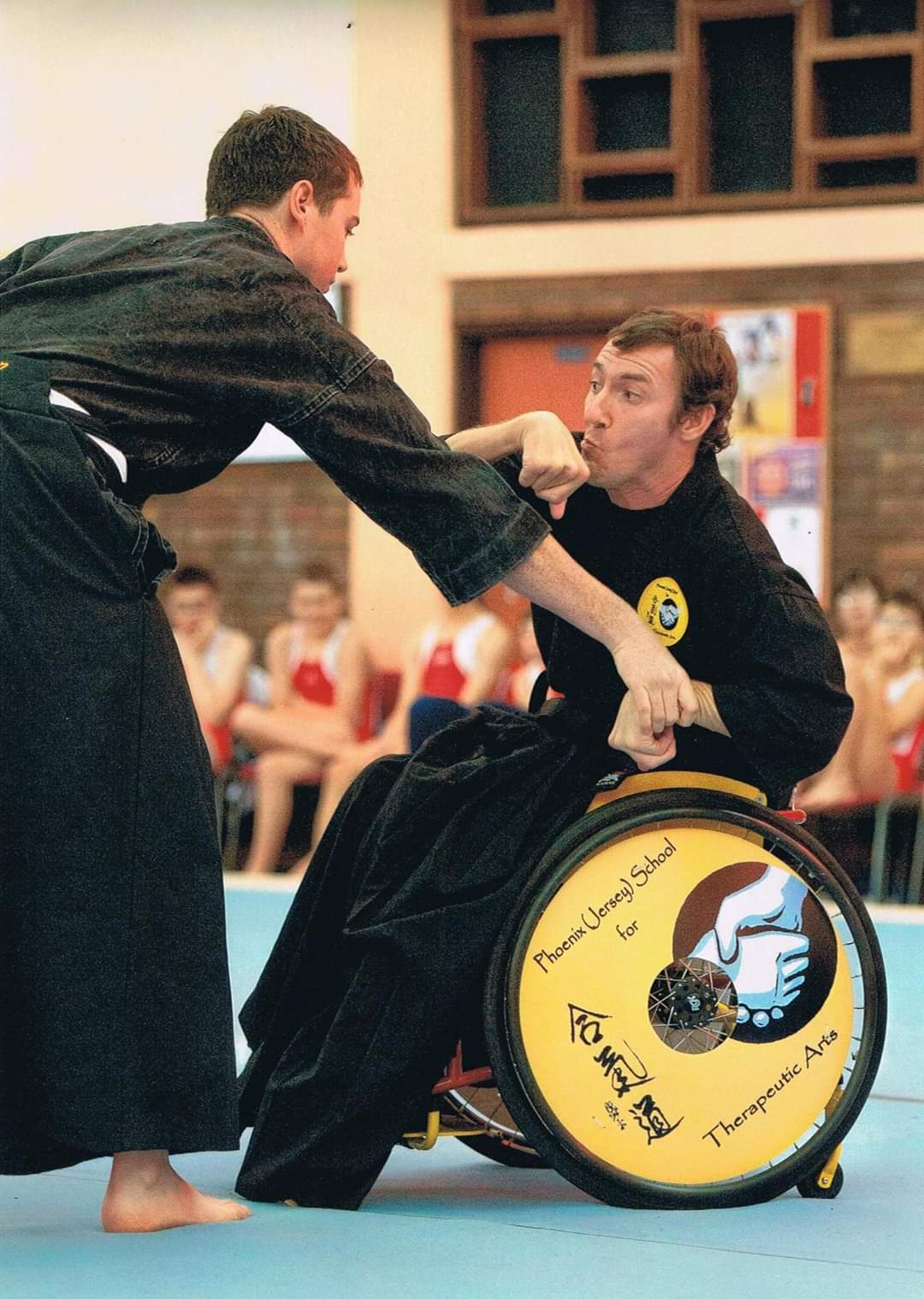

The only disabled person in Jersey to earn black belt grades in aikido, Ty Nicholson is described by his sensai as "an extraordinary young man". It's easy to see why.
Having started the martial art in 2006, the 46-year-old is now working towards his third Dan black belt and shows no sign of stopping there.
Aikido is an ancient technique that can be boiled-down to weaponless self-defence using balance, force, quick reaction and coordination of the full body.
Having taken to it like a " fish to water", Ty's mum Angie explained that getting her son involved in the sport actually started with what she described as a "bone of contention".
“One year, we were at a JSAD evening (Jersey Sports Association for the Disabled," she explained. "They presented an aikido display that was done in a wheelchair, but the person got up and walked away afterwards.”
As her son suffers from a severe form of cerebral palsy, Angie admitted that "professing" disabilities in sport does not sit right with her and fuelled her to take the matter into her own hands.
“I have a bone of contention with people professing to be able to do disabled sport when they’re not disabled,” she said. "So, the following day I approached the aikido masters and gave them a challenge to teach my son.”
Those masters, including Kanchõ Róisín Pitman, taught at the then-called Phoenix (Jersey) School for Therapeutic Arts.
Once Ty was welcomed into the dojo, Angie said: “He took to it like a fish to water. Everybody was more than welcoming.”
As he began to flourish in the sport, the club devised a system of aikido that Ty was able to fulfil, first starting in a wheelchair before progressing to a standing frame.

Pictured: Róisín (left) coached Ty to earn his first black belt grade in 2011.
Tailored training equipment and a wheelchair-modified uniform were also created for him, which were "big things" for Ty and his mum.
Ms Pitman, who herself suffers from Stickler Syndrome, told Express that coaching Ty to this advanced level has been "a steep learning curve", but described it as one of the "highlights of [her] life".
His influence was that powerful that the club changed their name to Aikido Mukyokan International, Mu-Kyo-Kan, translating to place (kan) with no (mu) limits (kyo).
Explaining how profoundly impacted she was by Ty, Ms Pitman explained that her experience of disabilities motivated her to find ways around Ty's condition.
"My late father was blind most of his life, and he lived by the mantra, 'Look for the ability, not the disability," she said.
Having now taught aikido to disabled athletes around the world, she thinks back to when Ty first joined her dojo.
"When Ty asked to join, I had no hesitation. We worked together to determine what he could do and what he was physically unable to achieve. As a disabled athlete myself, it was important for me to try and involve those with disabilities to achieve the best of themselves through martial arts. Tyrone is an extraordinary young man who tackles life head on and I couldn't be prouder of him."
After nearly two decades of learning, Ty is now a second Dan black belt and working towards his third.
But, since 2006, Ty remains the only disabled martial arts black belt athlete in Jersey – something that Angie and Róisín would like to see change.

Pictured: Ty remains the only disabled martial arts athlete in Jersey.
“[Martial arts clubs] haven’t been able to attract other people with disabilities in Jersey,” Angie said.
To improve disability participation in martial arts in the island, Ms Pitman is currently undertaking a survey of all clubs in the hope that it can be improved in future.
She continued: “Sometimes it can be a cost issue in as much as things like sports wheelchairs are needed for people with physical disabilities but for those with cognitive impairments, there’s no reason why they can’t take part in sport. It just takes them a little bit longer t learn."
Angie also noted that stigma and fear can hinder participation.
“I think it’s fear on both sides – fear from parents that their child is not going to be able to do it and fear from the instructors that they’re not going to be able to cope," she commented.
But she explained that physical and cognitive disabilities don't stop athletes from working towards qualifications like Ty.
“It doesn’t matter what your abilities are – if you’re prepared to put the training in then you can work towards the qualifications... People need to open their eyes and say, ‘We can do this’.
"It may take some a bit longer or how they train people may need to change but there’s no reason why anybody with a disability can’t take part in any sport that they want to."
Comments
Comments on this story express the views of the commentator only, not Bailiwick Publishing. We are unable to guarantee the accuracy of any of those comments.